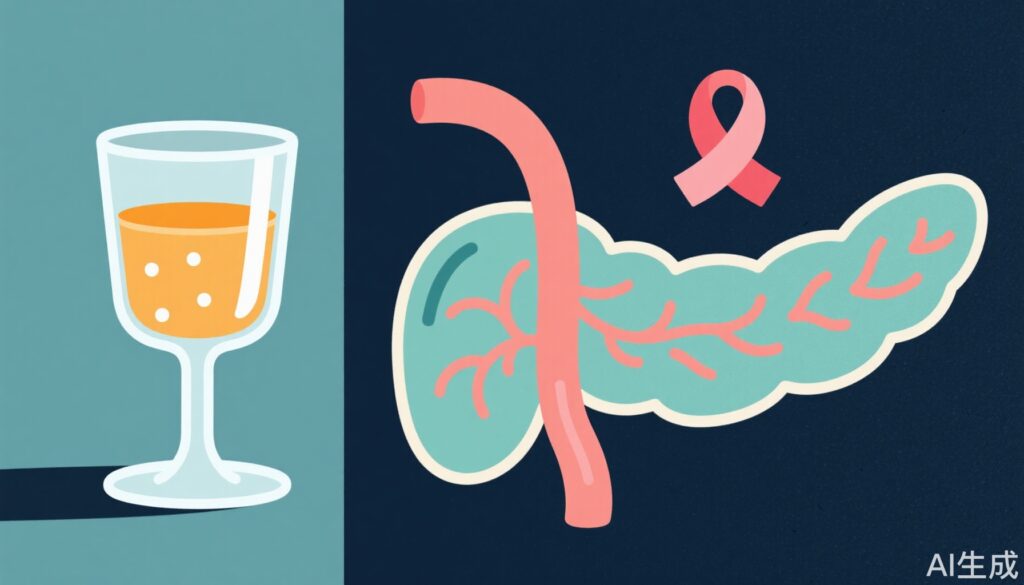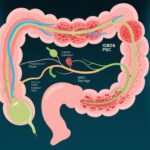Background
Pancreatic cancer is one of the most aggressive forms of cancer, often diagnosed at a late stage, making survival rates alarmingly low. While smoking and certain genetic factors are established contributors to its development, the role of alcohol has remained controversial. Recent findings from a comprehensive international study shed light on the connection between alcohol consumption and pancreatic cancer risk, offering clarity on this critical health issue.
Scientific and Clinical Evidence: What the Data Tell Us
A global study published in PLoS Medicine analyzed data from over two million individuals participating in 30 prospective cohorts across four continents. Researchers observed a total of 10,067 cases of pancreatic cancer over a median follow-up period of 16 years. The study employed two models to assess the impact of alcohol consumption on cancer risk:
1. **Continuous Model**: This model revealed that for every additional 10 grams of alcohol consumed daily, the risk of developing pancreatic cancer increased by 3%. This finding suggests there may be no “safe” level of alcohol consumption in relation to pancreatic cancer risk.
2. **Threshold Model**: In contrast, this model identified distinct risk thresholds. Women consuming one to two standard drinks per day faced a 12% increased risk, while men consuming two to four drinks daily saw their risk rise by 15%. Beyond these levels, the risk escalated significantly, with men drinking more than four drinks per day experiencing a 36% increase in risk.
Misconceptions and Harmful Behaviors
Historically, the evidence linking alcohol to pancreatic cancer has been inconsistent, partly due to challenges in isolating alcohol’s effects from those of smoking, which is a well-known risk factor for this cancer. Additionally, variations in cancer risk by type of alcoholic beverage and geographic location have further complicated the picture. While beer and spirits were associated with increased risk, wine appeared to have no significant effect in this study. However, experts caution that such findings may reflect drinking behaviors rather than inherent properties of wine.
Correct Health Practices and Practical Recommendations
Given the study’s findings, individuals should consider moderating their alcohol consumption to reduce their overall cancer risk. Health professionals and public health campaigns should emphasize the dose-dependent nature of alcohol’s risks and educate the public on the importance of mindful drinking. For those already at higher risk of pancreatic cancer due to genetic predispositions or lifestyle factors, abstinence might be the safest choice.
Expert Insights and Commentary
Dr. Pietro Ferrari, senior author of the study, emphasized the need for alcohol to be recognized as a risk factor for pancreatic cancer. Dr. Jeanine Genkinger, co-author, reiterated the significance of even moderate drinking as a contributor to cancer risk. Dr. Alison Klein from Johns Hopkins School of Medicine, who was not involved in the study, supported the inclusion of pancreatic cancer on the list of alcohol-related cancers.
Conclusion
The recent research provides compelling evidence that alcohol consumption is a modifiable risk factor for pancreatic cancer. By recognizing this link, individuals and healthcare systems can work towards reducing incidence rates through education, prevention strategies, and policy changes, such as labeling alcoholic beverages with cancer warnings.
References
1. Ferrari, P., et al. “Alcohol consumption and pancreatic cancer risk.” PLoS Medicine, 2023.
2. Genkinger, J., et al. “The Pooling Project of Prospective Studies of Diet and Cancer.” Columbia University, 2023.
3. Klein, A. “Pancreatic cancer: Risk factors and prevention.” Johns Hopkins School of Medicine, 2023.


